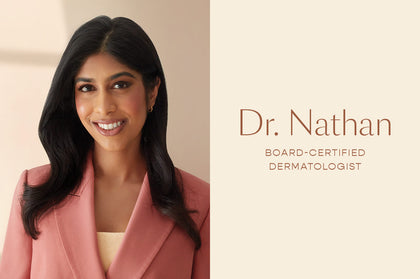There is so much buzz about the relationship between nutrition and hair loss, but it seems like certain vitamins and nutrients always steal the show. Here are four macronutrients and vitamins that you may not realize are instrumental to your hair’s health.
Protein
Protein is one of the most important macronutrients for hair growth and is often underrecognized. Most of the hair strand is made of a protein called keratin, so it’s no surprise that we need protein to grow hair. The importance of protein for hair growth is demonstrated by a condition called kwashiorkor, a severe form of protein deficiency from malnutrition that leads to hair loss and hair brittleness in addition to abnormalities in the abdominal cavity, liver, skin and muscle. Some studies suggest that in healthy individuals experiencing hair loss, protein supplementation alone may support hair growth.
Vitamin D
Why does vitamin D matter? Vitamin D is critical to cell growth and signaling within the hair follicle; in particular, it may be important for initiating the hair growth phase during each hair cycle. Healthy people can make their own vitamin D through sunlight exposure and also may obtain this vitamin through diet. The importance of vitamin D for hair growth is demonstrated in people with certain inherited disorders of vitamin D metabolism, which can cause bone abnormalities in addition to hair loss. Low vitamin D levels have been associated with various types of hair loss, including telogen effluvium, female pattern hair loss and alopecia areata. Some clinical data suggest that vitamin D supplementation in healthy people may stimulate hair growth.
Fatty Acids
Fatty acids are present throughout the hair shaft or strand. While fatty acids only make up a small percentage of the hair strand, they do play an important role in hair structure and can be depleted by hair bleaching or other chemical treatments. Some early in vitro (performed in a test tube or culture dish) data shows that certain fatty acids may induce the hair growth phase or stimulate hair cell growth. There’s also some clinical data that fatty acids, particularly omegas, may support hair growth when used as part of a supplement.
Antioxidants
The hair follicle is susceptible to oxidative stress, which, over time, may contribute to hair loss or hair graying. Antioxidants help to protect the hair follicle by neutralizing reactive oxygen species before they can do damage. Zinc and selenium — minerals that we obtain through our diet — are important to many enzymes in the body and have antioxidant properties. Some studies show that an imbalance or deficiency of zinc or selenium may contribute to hair loss. Tocotrienols are a form of vitamin E that are potent antioxidants. One study showed that supplementation of tocotrienols in healthy individuals supported hair growth.
More From Dr. Nathan
- 2 Major Ways Stress Affects Hair, According to Dr. Neera Nathan
- What Your Hair Can Tell You About Your Overall Health



















